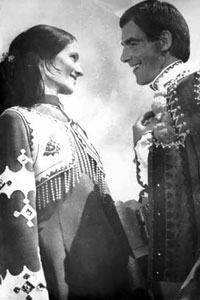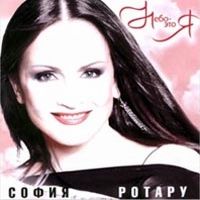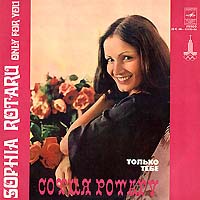
Sofiia Mykhailivna Yevdokymenko-Rotaru, known simply as Sofia Rotaru, is a Ukrainian pop singer of Romanian origin.

TNMK or Tanok na Maidani Kongo - is the most successful Ukrainian hip-hop group. They are known for clever, yet often tongue-in-cheek, lyrics; mixing hip-hop with rock, funk and jazz music and playing real instruments on their albums and live shows, rather than using samples and drum machines. TNMK performed at many festivals as: Sziget Fest, Zakhid, Tavria Games, Chervona Ruta, Faine Misto and Bandershtat.

Viburnum opulus, the guelder-rose or guelder rose is a species of flowering plant in the family Adoxaceae native to Europe, northern Africa and central Asia.
"Chervona Ruta" is a popular Ukrainian song written by Volodymyr Ivasyuk in 1968 and performed by many singers. Due to its wide popularity, Chervona Ruta is widely considered a Ukrainian folk song. It is named after a mythological flower, the chervona ruta, which if found turning a red colour by a young girl, was meant to bring happiness in love.
Pop music in Ukraine is Western influenced pop music in its various forms that has been growing in popularity in Ukraine since the 1960s.

Chervona Ruta is a 1971 Soviet musical film written by Miroslav Skochilyas and directed by Roman Oleksiv, starring Sofia Rotaru and Vasyl Zinkevych alongside popular Soviet Ukrainian ensembles.
Monologue of Love is a Soviet musical telefilm, written by Grigore Vieru and directed by Larisa Maslyuk, starring Sofia Rotaru in the main role. The movie filmed at Ukretelefilm in Crimea, Kazakh SSR and Lithuanian SSR, features the new conception in the Soviet musical telefilms: substantial poetry monologues recited by Sofia Rotaru on themes associated with love, followed by thematic songs and corresponding natural geographical and theatrical scenic setting.

Ukrainian folklore is the folk tradition which has developed in Ukraine and among ethnic Ukrainians. The earliest examples of folklore found in Ukraine is the layer of pan-Slavic folklore that dates back to the ancient Slavic mythology of the Eastern Slavs. Gradually, Ukrainians developed a layer of their own distinct folk culture. Folklore has been an important tool in defining and retaining a cultural distinctiveness in Ukraine in the face of strong assimilatory pressures from neighboring lands.

Sofia Rotaru, also known as Ballad of Violins is the second album by Soviet singer-songwriter Sofia Rotaru, released in 1974 by Melodiya. The album includes songs performed in Russian, Ukrainian, Bulgarian and Romanian languages.

Chervona Ruta was a Ukrainian music group that performed between 1971 and 1990. Chervona Ruta group was created in 1971 by Anatoliy Evdokimenko with the Chernivtsi Philharmonic specially for the accompaniment of Sofia Rotaru. The founding members of the group were part of the pop orchestra of the Chernivtsi University.
"Lavanda" is one of the major hits of Sofia Rotaru, a popular song for duet performance of 1985. It was first performed on the New Year TV.

Ya – tvoya lybov'! - is a 2008 studio album of Sofia Rotaru, recorded at Artur-Music in Ukraine. The album was released on 9 June 2008 in Ukraine with 11 tracks. The album includes eight earlier unreleased, but aired in charts songs, one remastered song and two new songs, never aired before the release of the album: Mozart, Look Behind and Don't Walk Away.

Ya zhe yego lyubila (Russian: Я же его любила / literally: I Loved Him - is a 2005 studio album of Sofia Rotaru, recorded at Artur Music in Ukraine. The album was released in the summer of 2005 in Ukraine first with 10 tracks. The album includes 3 earlier unreleased singles, one remastered song, and 6 songs aired previously on TV shows and Musicals.

Nebo – eto ya - is a 2004 studio album of Sofia Rotaru, recorded at Artur-Music in Ukraine. The album was released in the autumn of 2004 in Russia and Ukraine as well as worldwide simultaneously. The album includes earlier unreleased singles and two remixes of the song White Dance (Russian: Belyi tanets/Белый танец. Besides the original playing time of 47:54, the album includes a bonus and a music video for White Dance by Oleg Gusev, filmed at Lenfilm. The original discs sold with 1.700.000 copies.

Visit to Ukraine is the first studio album by Sofia Rotaru, released by the APON label in 1975 in Canada and United States with ten tracks. The album is one of the earliest releases of the singer abroad.

Yedynomu - is the third studio album of Sofia Rotaru, recorded in Ukraine. The album was released in 2003 in Ukraine and Russia with 16 tracks with consequent worldwide release. This album appeared after a pause in Rotaru's career caused by the death of her husband Anatoliy Evdokimenko and is a tribute to his memory.

Only for You is a studio album of Sofia Rotaru, recorded at Melodiya in the USSR in 1979. This is one of the rare art works where her first name is spelled with an "h" as Sophia instead of typical Sofia.

Sofia Rotaru and Chervona Ruta is a 1981 studio album by Sofia Rotaru, recorded at Melodiya in the USSR. It is packaged together with Where Has Love Gone?, the film soundtrack for Where Has Love Gone?.

Sofia Rotaru poёt pesni Vladimira Ivasyuka is a studio album of Sofia Rotaru, recorded at Melodiya in the USSR in 1978. Sofia Rotaru was awarded the grand prix of the Central Committee of Komsomol for this album, which became the reference in Ukrainian pop culture. Russian title: Sofia Rotaru poёt pesni Vladimira Ivasyuka Ukrainian title: Pisni Volodimira Ivasyuka spivae Sofia Rotaru
"Kray, miy ridniy kray" is a song originally recorded by Sofia Rotaru for her 1981 album Sofia Rotaru and Chervona Ruta.















